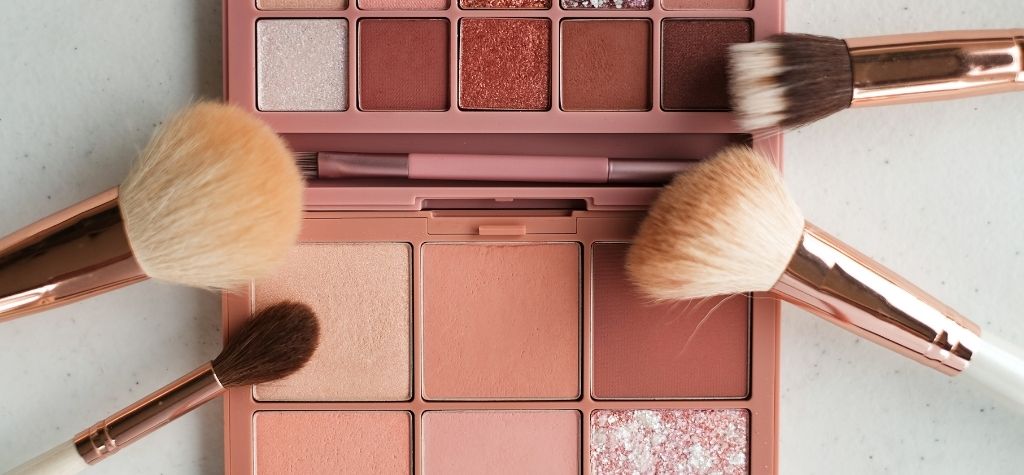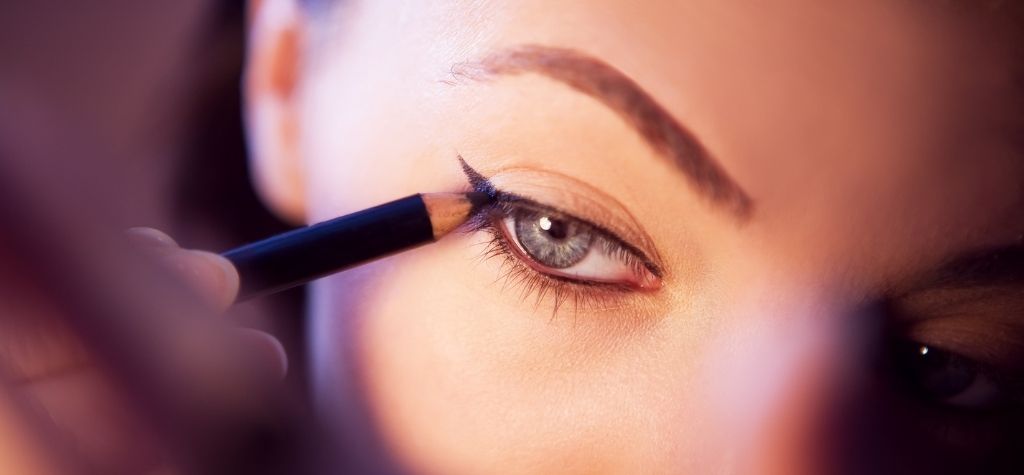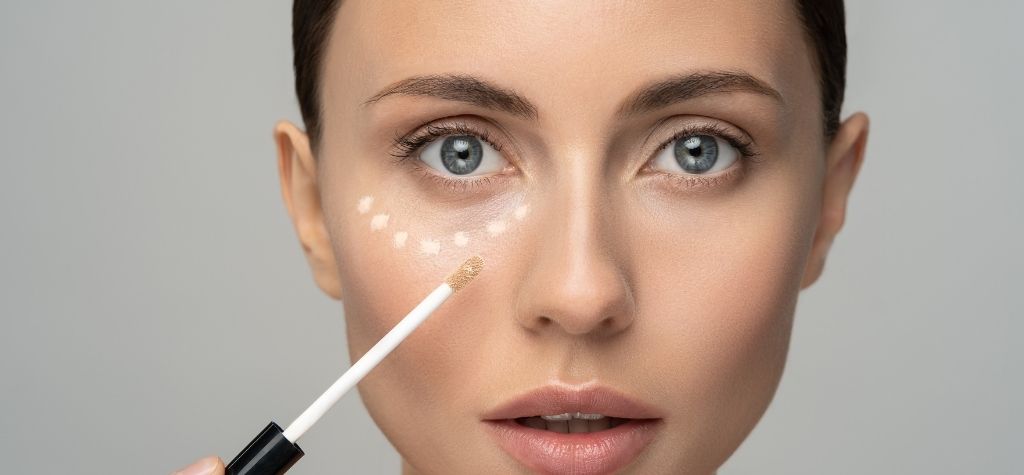Makeup is a daily essential for many, but did you know that some common habits could be putting your eye health at risk? From expired mascara to improper application techniques, these seemingly harmless mistakes can lead to infections, irritation, and even long-term damage. In this article, we’ll explore six common makeup mistakes that could harm your eyes and how to avoid them.
1. Using Expired Makeup

Makeup products, especially those used around the eyes, have a shelf life. Expired products can harbor bacteria, leading to infections such as conjunctivitis (pink eye).
How to Check Expiry Dates
- Mascara & Liquid Eyeliner: Replace every 3–6 months
- Eye Shadows & Pencils: Replace every 1–2 years
- Cream-Based Products: Replace every 6–12 months
Using fresh products reduces the risk of introducing bacteria to your eyes.
2. Sleeping with Eye Makeup On
Falling asleep with mascara, eyeliner, or eyeshadow on can cause clogged oil glands, bacterial buildup, and irritation. It increases the risk of eye infections, including styes and conjunctivitis.
Safe Makeup Removal Routine
- Use a gentle eye makeup remover such as micellar water or an oil-based cleanser.
- Avoid rubbing the eyes. Instead, gently wipe downward with a cotton pad.
- Rinse with lukewarm water and apply a hydrating eye cream to protect the delicate skin around the eyes.
3. Sharing Eye Makeup Products
Sharing makeup may seem harmless, but it increases the risk of spreading bacteria and viruses, leading to infections.
Why Sharing is Risky
- Mascara wands and eyeliners easily collect bacteria.
- Pink eye and other infections can spread quickly.
- Testers in stores can carry harmful germs from multiple users.
To stay safe, always use personal makeup products and avoid store testers unless disposable applicators are provided.
4. Applying Eyeliner on the Waterline

Many people apply eyeliner to the inner rim of their eyes, but this can lead to blocked oil glands, bacterial infections, and irritation from certain eyeliner ingredients.
Safe Eyeliner Application Tips
- Apply liner outside the lash line, avoiding the waterline.
- Use a pencil eyeliner instead of liquid to reduce the risk of irritation.
- Remove eyeliner completely before sleeping to prevent buildup and infection.
5. Using Dirty Makeup Brushes and Tools
Dirty brushes and makeup sponges are breeding grounds for bacteria that can cause eye infections, irritated or swollen eyelids, and breakouts around the eyes.
How to Keep Brushes Clean
- Wash brushes weekly using a gentle brush cleaner or baby shampoo.
- Use disposable applicators for cream-based products.
- Store makeup tools in a clean, dry place to prevent contamination.
6. Wearing Contact Lenses After Applying Makeup
Applying makeup before inserting contact lenses can cause product particles to get trapped under the lens, leading to irritation, corneal scratches, and infections.
Correct Application Order
- Insert contacts before applying makeup to reduce the risk of contamination.
- Use oil-free makeup to prevent smudging and irritation.
- Avoid glittery or powder-based eyeshadows near the lenses, as tiny particles can get into the eyes.
Best Practices for Eye-Safe Makeup Application

- Choose hypoallergenic and fragrance-free eye makeup to reduce irritation.
- Avoid waterproof mascara if you have sensitive eyes, as it requires harsh removal methods.
- Never use saliva to moisten dry mascara, as it introduces bacteria into the product.
Ingredients to Avoid in Eye Makeup
- Parabens: Linked to irritation and allergies.
- Fragrance: Can cause burning or redness.
- Formaldehyde-releasing preservatives: May contribute to eye irritation and long-term health risks.
Opt for brands that use natural and safe ingredients to minimize the risk of eye irritation.
How to Properly Remove Eye Makeup
- Use micellar water or an oil-based remover to dissolve makeup without excessive rubbing.
- Press a soaked cotton pad on your eyelid for 10 seconds before gently wiping away the makeup.
- Rinse your face with lukewarm water and pat dry with a clean towel.
How to Recognize Eye Irritation or Infection
Common symptoms of eye infections caused by makeup include:
- Redness or swelling around the eyes
- Itchy, watery eyes
- Sensitivity to light
- Unusual discharge
If any of these symptoms appear, stop using makeup immediately and consult an eye doctor.
Natural and Hypoallergenic Makeup Alternatives
Best Brands for Sensitive Eyes
- Almay
- Physicians Formula
- Clinique
- BareMinerals
These brands offer fragrance-free, paraben-free, and dermatologist-tested eye products suitable for sensitive eyes.
Expert Advice on Eye Health and Makeup Use

Dr. Sarah Thompson, an ophthalmologist, recommends replacing mascara every three months and avoiding sleeping in eye makeup to prevent infections. She also advises against using expired products, as they can harbor harmful bacteria.
FAQs: 6 Common Makeup Mistakes That Could Harm Your Eyes
1. Can old mascara cause eye infections?
Yes, old mascara harbors bacteria, increasing the risk of pink eye and styes. It is recommended to replace mascara every three months.
2. Is waterproof mascara bad for your eyes?
Waterproof mascara is safe but harder to remove, which can lead to excessive rubbing and irritation. It is best to use a gentle, oil-based remover.
3. How can I make my eye makeup last longer?
Use an eyeshadow primer and choose long-wear, smudge-proof products to extend the wear of your eye makeup.
4. What are the signs of an eye infection from makeup?
Signs include redness, itching, swelling, and discharge. If you experience any of these symptoms, stop using makeup and see a doctor.
5. Can I wear eye makeup with contact lenses?
Yes, but it is important to apply contacts before makeup, avoid powdery eyeshadows, and use oil-free formulas to prevent irritation.
6. Are natural makeup products better for eye health?
Yes, natural and hypoallergenic products reduce the risk of irritation and are free from harmful chemicals commonly found in conventional makeup.
Conclusion
Your eyes are delicate, and even small makeup mistakes can lead to serious issues. By following these tips, cleaning your tools regularly, and choosing safe products, you can keep your eyes healthy and prevent unnecessary irritation or infections.

